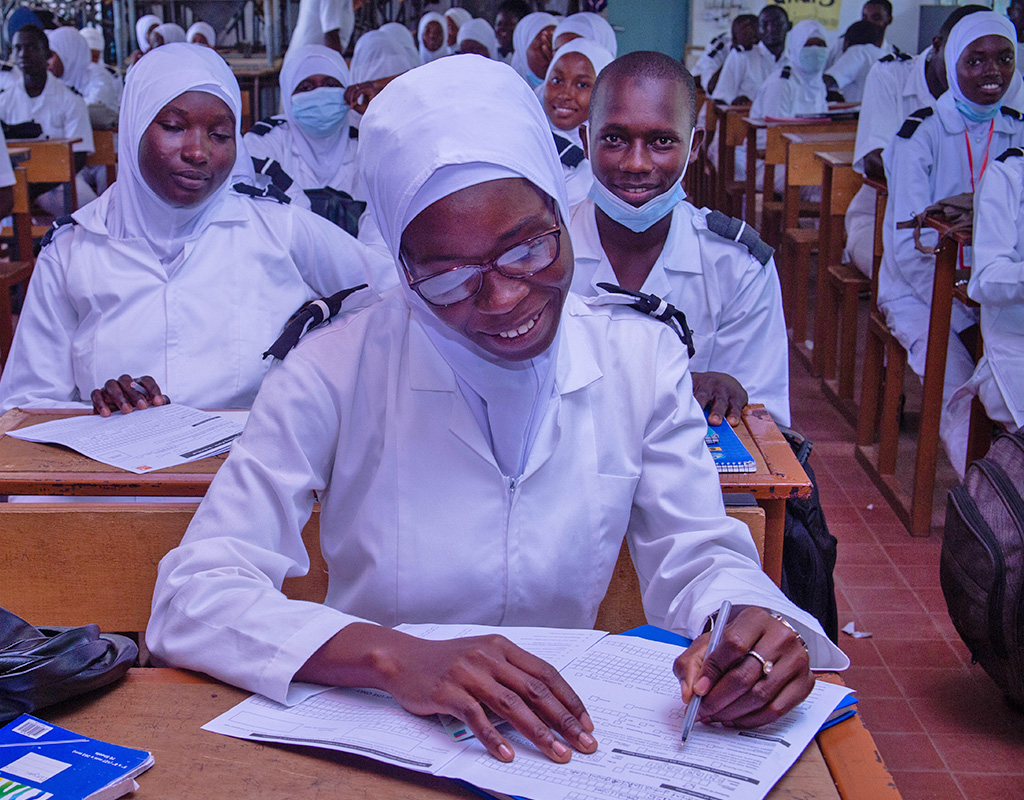Programme Overview
Advanced Diploma in Nursing (ADN) Programme is a three-year programme including annual vacations, statutory holidays and incidental leave. On completion of the training the trainee becomes eligible to register and practice as a Registered Nurse (RN). The programme prepares polyvalent nurses to work/practice in all health care settings.
The programme provides opportunities for students to understand their role as nurses, become acquainted with the dimensions of nursing as a profession, the health care system as an environment and the concepts of health and health adaptations that affect patients. It also enables students to acquire competencies to develop and perform nursing functions that promote and maintain health as well as the prevention of illness.
Using research findings, the students are also able to assess, plan, implement and evaluate care during illness and rehabilitation; this includes the physical, mental and social aspects of life as they affect health, illness, disability and dying. They are also tutored in teaching, counselling, leadership and managerial skills to enable them function in all health care settings.
- Admissions
- October/November
- Campus
- Banjul
- Duration
- 3 Years
- Certification
- Advanced Diploma
Fees:
National
| tuition | D15000 |
|---|---|
| internet | D1000 |
| practicals | D5000 |
| Total | D21000 |
International
| tuition | D25000 |
|---|---|
| internet | D1000 |
| practicals | D5000 |
| Total | D31000 |
Minimum entry requirements
Candidate must have at least:
- General Certificate of Education Ordinary Level (GCE O’Levels) 5 credits which must include English, Science and (3) three other academic subjects.
- OR
- West African Senior Secondary School Certificate of Education (WASSCE) 4 credits which must include English, Science and (2) two other academic subjects
- OR
- A State Enrolled Nurse/Midwife or Enrolled Community Health Nurse/Midwife Certificate holder with at least two years working experience and (3) three GCE/ WASSCE credits in English, Science and any other academic subject.
After scrutinising the application forms, short-listed candidates will be interviewed and a final selection of prospective students made.
Programme Coordinator/s
- Abdoukarim Fofana
- 2019 Intake 1
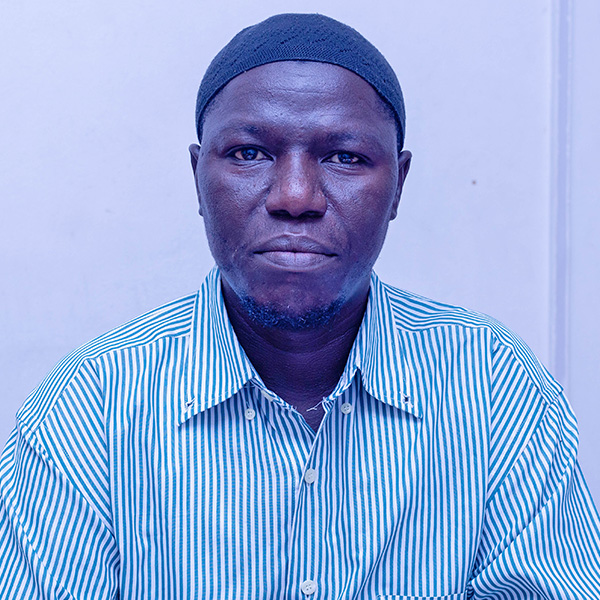
- Babanding jobe
- 2019 Intake 2
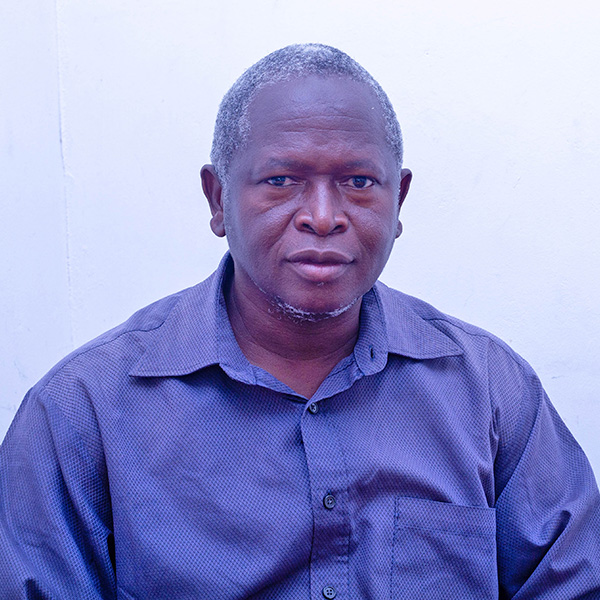
- Alkali Jabbi
- January 2020 Intake
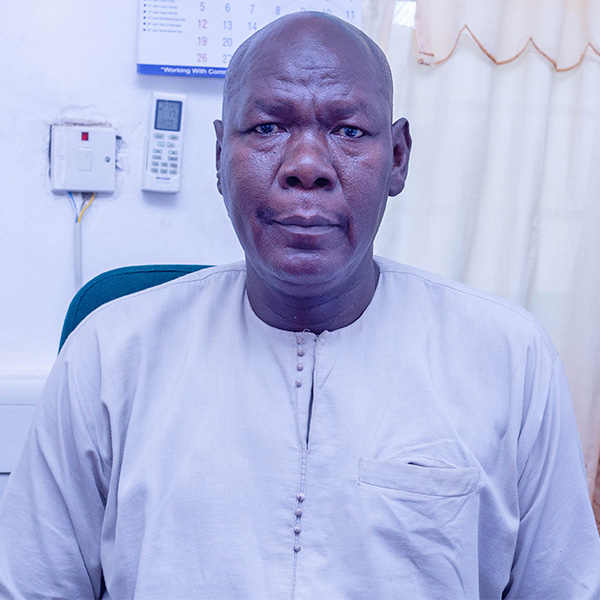
- Alasana Kanteh
- October 2020 Intake
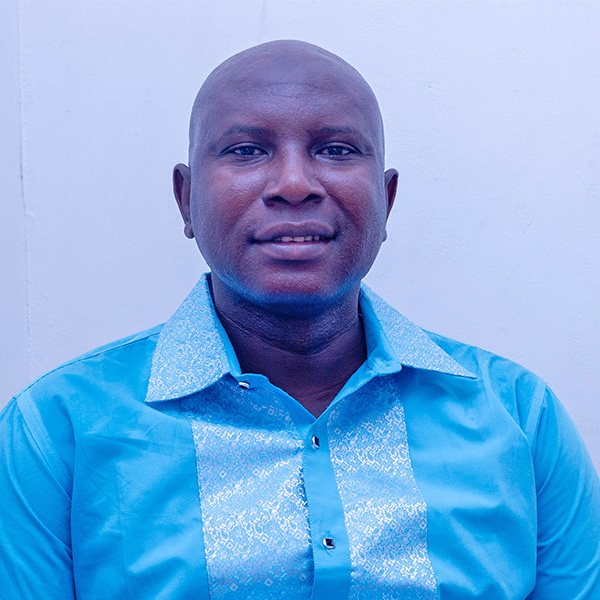
- Bubacarr Cham
- November 2020 Intake
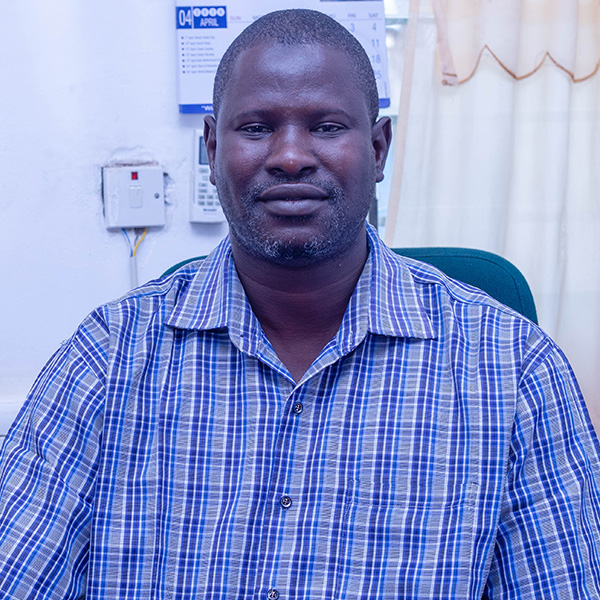
- Fatou Khan
- April 2021 Intake 1
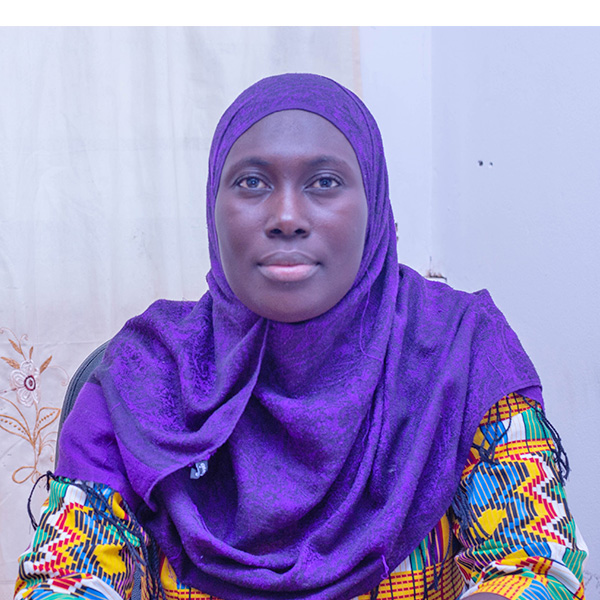
- Pierre Njie
- April 2021 Intake 2
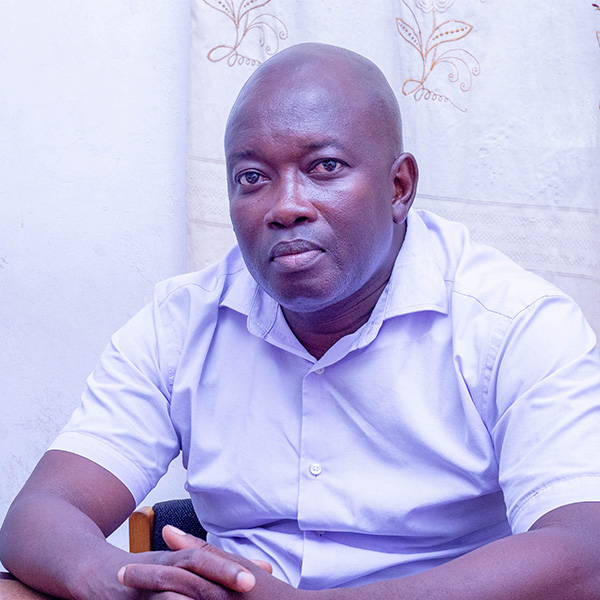
Program Curriculum
The curriculum is designed to include theoretical and practical skills with research incorporated in various areas of nursing. The theoretical component and clinical practice are correlated to link theory to practice and ensure maximum acquisition of skills.
The programme extends over a period of 3 years and consists of the following courses:
-
Term I
Course List Course Code Course Title Credit Hrs NUS 100 Introductory Block 3 NUS 101 Introduction to Community Health Nursing (Practice) 3 Total Credits 6 Term II
Course List Course Code Course Title Credit Hrs NUS 102 Basic Nursing Skills I (Theory) 3 NUS 103 Basic Nursing Skills I (Practice) 3 NUS 104 Basic Nursing Skills II (Theory) 3 Total Credits 9 Term III
Course List Course Code Course Title Credit Hrs NUS 105 Basic Nursing Skills II (Practice) 3 NUS 106 Basic Nursing Skills III (Theory) 3 NUS 107 Basic Nursing Skills III (Practice) 3 Total Credits 9 -
Term I
Course List Course Code Course Title Credit Hrs NUS 200 Community Nursing I (Theory) 3 NUS 201 Community Nursing I (Practice) 3 NUS 202 Obstetric Nursing (Theory) 3 Total Credits 9 Term II
Course List Course Code Course Title Credit Hrs NUS 203 Obstetric Nursing (Practice) 3 NUS 204 Paediatric Nursing (Theory) 3 NUS 205 Paediatric Nursing (Practice) 3 Total Credits 9 Term III
Course List Course Code Course Title Credit Hrs NUS 206 Psychiatric Nursing (Theory) 3 NUS 207 Psychiatric Nursing (Practice) 3 Total Credits 6 -
Term I
Course List Course Code Course Title Credit Hrs NUS 300 Emergence Post Trauma / Theatre Nursing (Theory) 3 NUS 301 Emergence Post Trauma / Theatre Nursing (Practice) 3 NUS 302 Teaching and Management Skills I (Theory) 3 NUS 303 Teaching and Management Skills I (Practice) 3 Total Credits 12 Term II
Course List Course Code Course Title Credit Hrs NUS 304 Teaching and Management Skills II (Theory) 3 NUS 305 Teaching and Management Skills II (Practice) 3 NUS 306 Teaching and Management Skills III (Theory) 3 NUS 307 Teaching and Management Skills III (Practice) 3 Total Credits 12 Term III
Course List Course Code Course Title Credit Hrs NUS 308 Community Nursing I (Theory) 3 NUS 309 Community Nursing II(Practice) 3 NUS 310 Computer Skills 3 NUS 311 Gambian Studies 3 Total Credits 12
Assessment
The Grade Point Average (GPA) is used. All courses are weighted and given credit hours. The number of grade points achieved for a course is calculated as:
- Grade Point Average X Credit Hours
The Grade Point factor is a numerical value assigned to a letter grade ranging from A-F. The GPA is computed at the end of every term and the total number of grade points obtained for all courses attempted in the term. The cumulative Grade Point Average (CGPA) is also calculated at the same time. At the end of training, certificates will be awarded to students with a minimum CGPA score of 2.50
Formative Evaluation (40 % of final Mark)
- Theory Block - Weekly tests & assignments
- Clinical Practice - Practical assessment / projects
Summative Evaluation (60 % of final Mark)
- Written Comprehensive examination
- Practical assessment
- Research Project
Grading system
| SN | Score | Grade | Point |
|---|---|---|---|
| 1 | 85% - 100% | A | 5 |
| 2 | 74% - 84% | B | 4 |
| 3 | 60%-73% | C | 3 |
| 4 | 50% - 59% | D | 2 |
| 5 | 40% - 49% | E | 1 |
| 6 | 0% – 39% | F | 0 |
Graduation Requirements
To be eligible for this award, the student must:
- Pass the continuous assessment with a CGPA of not less than 2.50
- Submit a research project and obtain a Pass grade in it
- Obtain a pass grade in the written comprehensive examination
- Obtain a pass grade in the final practical assessment
- Obtain a CGPA of not less than 2.50 at the end of training
Study Timeline
Advanced Diploma in Nursing in a nutshell
